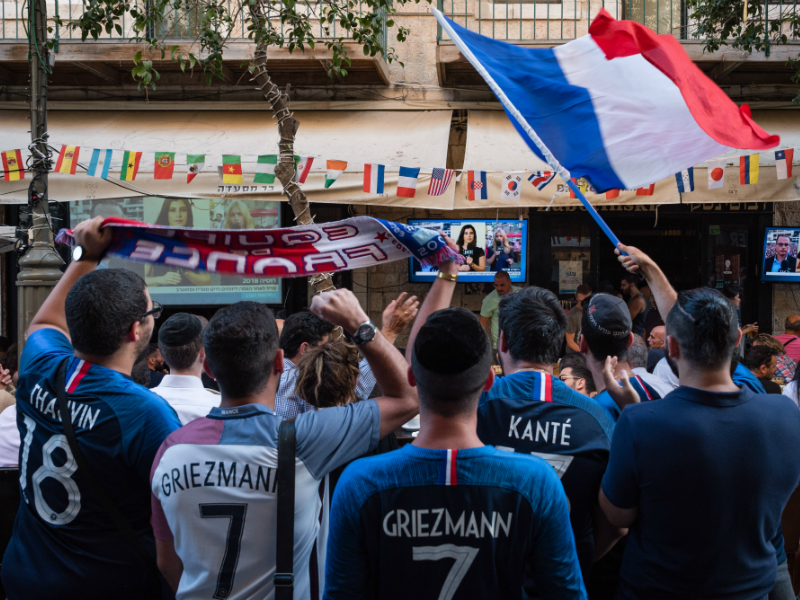Another World Cup has come and gone. I’ve never been a huge soccer fan myself, though I did play as a kid in Montreal. There were four teams, named after the four Ninja Turtles (we later learned the turtles were named after four Italian Renaissance artists). Nationalism was nowhere to be found, only small children kicking a large ball into a seemingly enormous net. The matches regularly ended with unthinkable scores, like 9-7.
I’ve watched my share of soccer, but I still don’t appreciate the “beauty” of a nil-nil draw. My far-left friends, who believe that nearly every aspect of society should be overturned, are aggressively conservative regarding the idiotic rules of soccer, particularly those governing offsides and substitutions, which limit scoring dramatically. With those in place, I doubt I’ll ever care about the major professional leagues throughout Europe.
But what soccer has over other sports is the importance of international competition, culminating every four years in the World Cup. I love the passion that soccer fans from all over the world feel for their country’s team. It dwarfs the Olympics in intensity, but unlike the Olympics, I have no country to root for. Canada and Israel have each made the World Cup once, decades ago. I need another mechanism for choosing my side.
As a sports fan, I try to support the underdog. But that principle feels inadequate for World Cup soccer. So I’ve developed a second principle: “What did the country do during the Second World War?”
This makes it easy to root against Germany, a heavy favourite in soccer today and the creator of death camps in the 1940s. I feel a little silly about this, since West Germany paid massive reparations to Holocaust survivors and the State of Israel, and Germans today make extra effort to repudiate their country’s antiSemitic past. Still, Montreal Gazette sportswriter Jack Todd once said that he’d root for Germany again in 2045, and that sounds about right to me.
Other countries in Europe had more complicated roles in the Second World War vis-à-vis Jews. The fascists in Italy were not anti-Semitic, until they were. Spain leaned heavily towards the Nazis, while Portugal was more neutral, though the legacy of the Inquisition and the Expulsion loom large for both nations. Switzerland was also neutral, but hoarded Jewish goods. Poland fought the Nazis, but is still denying its complicity in the Holocaust. Russia allied with Hitler until 1941, but then became the most important military actor in the Allied victory. You see how complicated it is?
READ: WEINFELD: KEEP ASKING QUESTIONS TO HONOUR PHILIP ROTH
Outside of Europe, I am free to root for most Central and South American countries, with the exception of Argentina, which harboured Nazis, and Brazil, because it is often a favourite in the tournament. I also root for African teams, as well as Arab or Muslim teams from the Middle East, for historically treating their Jews well, and because those teams often represent the opposition to the cruel regimes that are in power today. Asian underdog South Korea is a yes; former Axis power Japan is a no.
And what of this year’s World Cup final? Croatia was the underdog and I had some admiration for the fact that a country of just four million people got so far in the tournament. But Croats collaborated enthusiastically with the Nazis, killing 80 per cent of the country’s Jews in their own concentration camps. Of course, many in France collaborated, as well. But at least they had the Resistance. And while France has left a brutal legacy of colonialism, that same legacy produced a brilliant multicultural team, with a majority of players with African roots, including many Muslims.
So I celebrated, mildly, when France won. I would have preferred England, with a similar legacy of colonialism, but a better record during the Second World War (except in Palestine). Here’s hoping Canada or Israel make it in four years. But what if they face each other? Oy.

